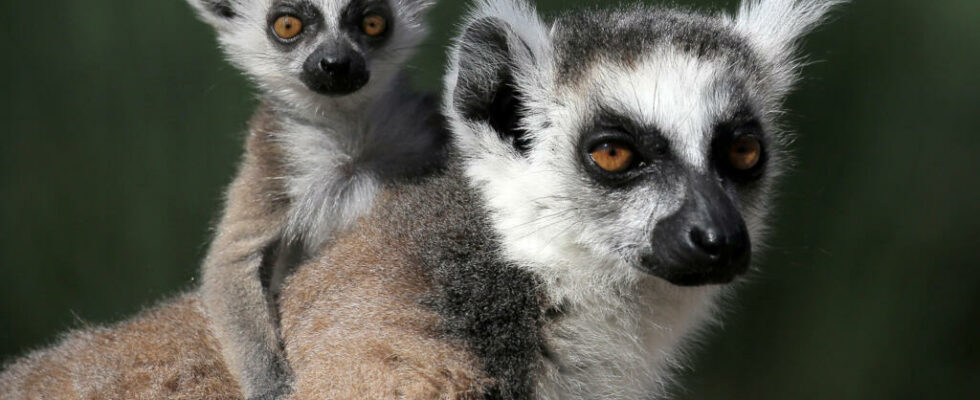This is the largest return of wild species in the history of Madagascar. This December 1, 2024, seven months to the day after their seizure in the South of Thailand, 48 lemurs and nearly a thousand turtles, captured illegally in Madagascar, began to return to Malagasy soil. The first wave includes 16 ring-tailed lemurs – a species as emblematic as it is endangered on the island – and landed at Antananarivo airport. A strong signal in the fight against this trafficking, whose progress remains largely hampered by corruption.
3 mins
Barely disembarked, at the foot of the plane, their piercing, orange and touching eyes can be seen through the cages, under the relieved gaze of Max Fontaine, Minister of the Environment. “ It’s just a great emotion to be on the tarmac here, seeing the lemurs out of the cages “.
These ring-tailed lemurs have come a long way. The first suspicions suggest a capture aboard small illicit boats on the west coast of Madagascar, then a transfer on the high seas to Thailand, the place of their seizure and a known hub for wildlife trafficking. “ It’s a scourge which is gaining ground in Southeast Asia, the domestication of these wild species which attract particular affection. For example, we have had cases in Hong Kong of people walking in the street with turtles on a leash. »
Around fifteen arrests
Among the thousand turtles seized, radiated tortoisesendemic to the island. Under the effect of deforestation and trafficking, the species has lost 75% of its initial population in 30 years, going from 12 million in 1990 to 3 million today. In this single case, now classified as a transnational organized crime, around fifty turtles and one lemur did not survive the conditions of captivity. The repatriated animals are now preparing to return to the south of the island, under high security, with a view to eventually being reintroduced into their natural habitat.
The investigation, carried out by a dedicated branch of the Thai Ministry of Justice and by the Anti-Corruption Unit (PAC) on the Malagasy side, has already made it possible to arrest six individuals in Thailand and nine individuals in Madagascar. THE ” colossal financial means » Suspects suggest a large organized criminal network, difficult to dismantle, explains Max Fontaine. “ There are always potential loopholes, there are always forces of evil which are very well organized, because there are large sums at stake, when we talk about turtles, it’s several thousand dollars, when we talk about lemurs, it’s several tens of thousands of dollars. »
The fight will involve the eradication of corrupt practices at the top of the administration. For years, Madagascar’s forests have been squandered with the complicity of certain senior state officials and regional authorities. The difficult implementation of the existing legal arsenal is another challenge to be met with less than 1% of the general state budget devoted to the Ministry of the Environment.
Also readWildlife trafficking still causes ‘incalculable damage to nature’, says UN
